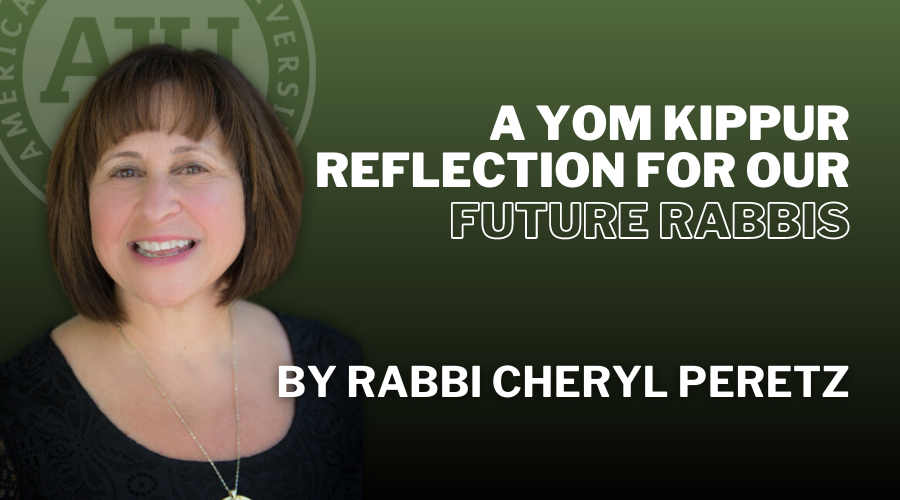
As we stand on the precipice of Yom Kippur, a day of introspection and atonement, I am reminded of a powerful teaching from the Talmud. It tells the story of a man who came to Rabbi Akiva with a question: "If I confess my sins, won't God forgive me anyway?" Rabbi Akiva replied, "Yes, God will forgive you. But the purpose of Yom Kippur is not merely about forgiveness; it's about healing."
This year, as we navigate the complexities of a world that often feels divided and uncertain, the message of healing becomes even more poignant. I tell our future rabbis, you are called to be healers, not just of souls but of communities. You are tasked with bridging divides, offering solace in times of sorrow, and inspiring hope in moments of despair.
This is true for every Jew. Before you can heal others, you must first heal yourself. Yom Kippur offers a unique opportunity for introspection. It is a time to confront our shadows, to acknowledge our shortcomings, and to commit to growth. As you reflect on the past year, consider the ways in which you may have fallen short of your ideals. What habits or behaviors have hindered your personal and spiritual development?
Remember, the goal of Yom Kippur is not to achieve perfection, but to strive for progress. It is about recognizing that we are all flawed human beings, but that we have the capacity for change. Through repentance and atonement, we can heal our wounds and become better versions of ourselves.
Just as we prepare our students in their rabbinical journeys, I encourage everyone to embrace the transformative power of Yom Kippur. Let this sacred day be a catalyst for personal growth and spiritual renewal. May you emerge from this holy season with a renewed sense of purpose and a commitment to serving God and your community with compassion and integrity.
Shanah Tovah,
Rabbi Cheryl Peretz
Associate Dean
Contact Communications
Michelle Starkman, M.A., MBA
Vice President, Communications
michelle.starkman aju.edu
aju.edu
(310) 440-1526
